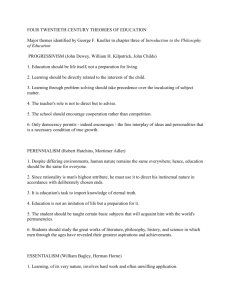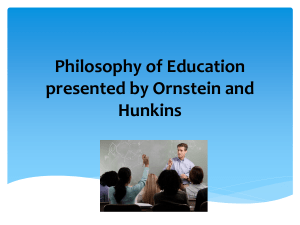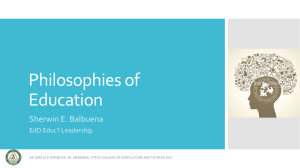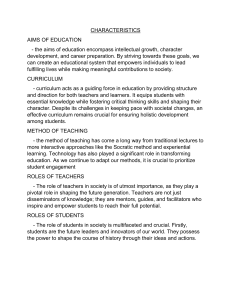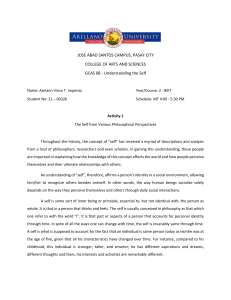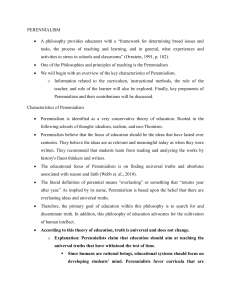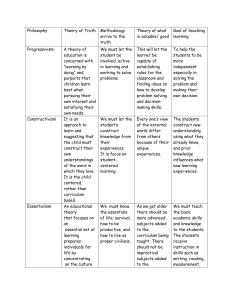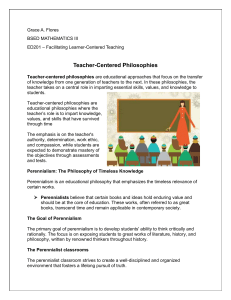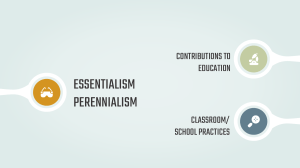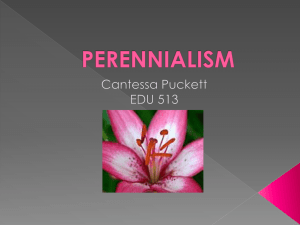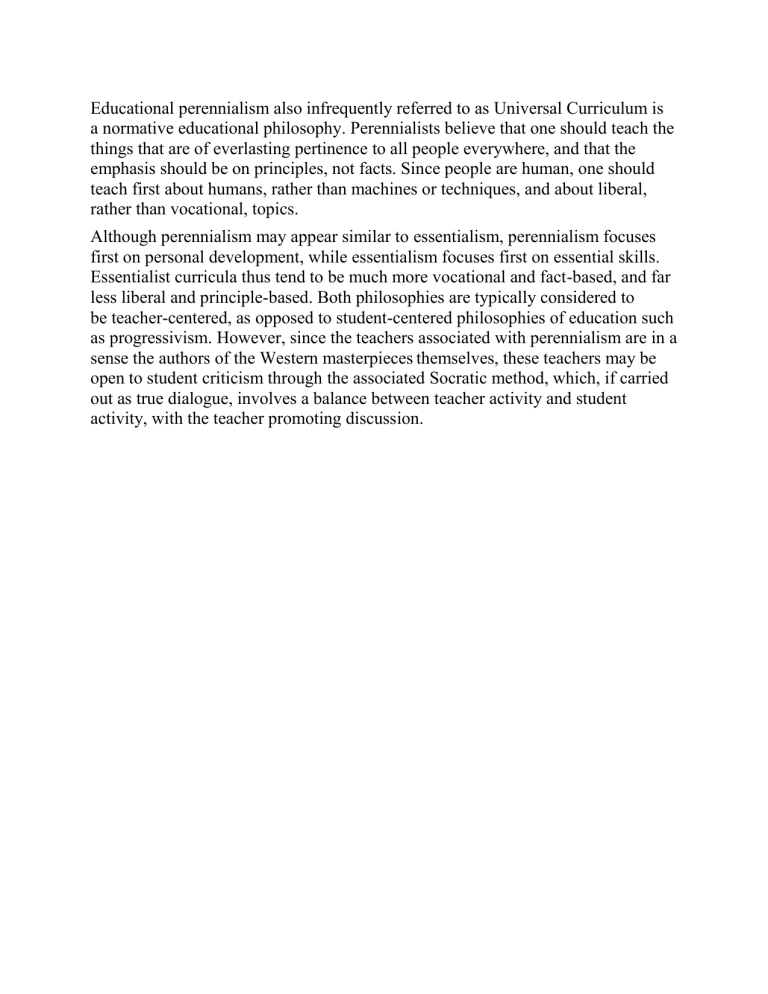
Educational perennialism also infrequently referred to as Universal Curriculum is a normative educational philosophy. Perennialists believe that one should teach the things that are of everlasting pertinence to all people everywhere, and that the emphasis should be on principles, not facts. Since people are human, one should teach first about humans, rather than machines or techniques, and about liberal, rather than vocational, topics. Although perennialism may appear similar to essentialism, perennialism focuses first on personal development, while essentialism focuses first on essential skills. Essentialist curricula thus tend to be much more vocational and fact-based, and far less liberal and principle-based. Both philosophies are typically considered to be teacher-centered, as opposed to student-centered philosophies of education such as progressivism. However, since the teachers associated with perennialism are in a sense the authors of the Western masterpieces themselves, these teachers may be open to student criticism through the associated Socratic method, which, if carried out as true dialogue, involves a balance between teacher activity and student activity, with the teacher promoting discussion.
